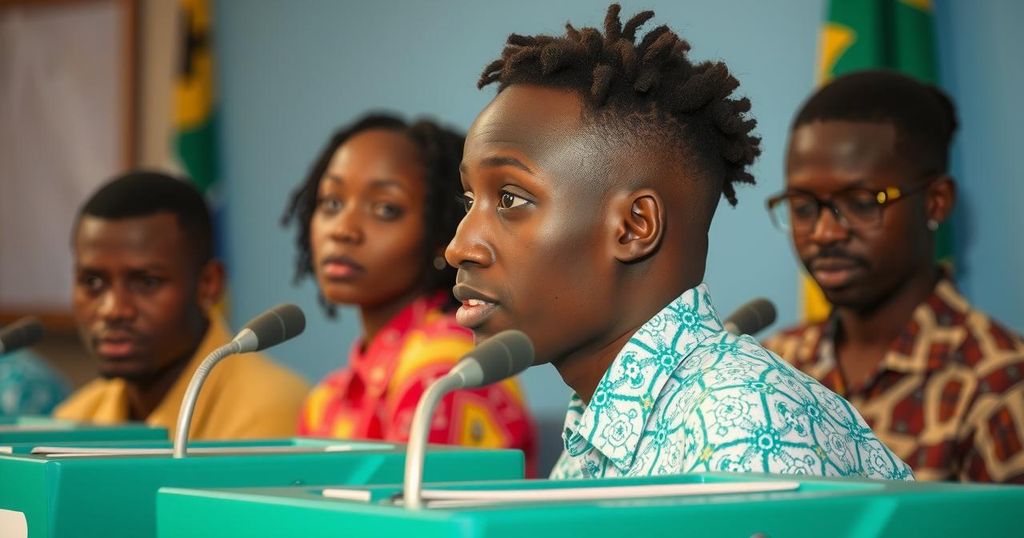Young Ghanaians, frustrated by economic hardships, approach the upcoming presidential election with hopes for change, primarily focusing on candidates Mahamudu Bawumia and John Mahama. Despite aspirations, concerns regarding electoral integrity and limited choices overshadow their optimism. The elections reflect a significant moment as youth seek solutions to pressing issues affecting their livelihoods.
In Ghana, the upcoming presidential election has become a focal point for young voters aspiring for change amidst severe economic hardships. Many, like first-time voter Joseph Antwi in Accra, express frustration with the current government’s failure to fulfill promises and tackle the escalating cost-of-living crisis, which has significantly impacted the youth. Despite the presence of twelve candidates, the competition primarily narrows down to Vice President Mahamudu Bawumia of the ruling New Patriotic Party (NPP) and former President John Mahama of the National Democratic Congress (NDC).
At final campaign rallies, both candidates aimed to present their visions as solutions to the ongoing economic difficulties. Bawumia pledged continuity and stability, stating, “I know what I want to do from day one in the presidency,” while Mahama advocated for a comprehensive national reset: “We need to reset our democracy, governance, economy… all that we hold dear as a people.”
Moreover, the country grapples with illegal gold mining—locally termed galamsey—which exacerbates environmental degradation. The actions of illegal miners have sparked recent protests, reflecting deeper concerns regarding unemployment and the urgent need for improved living conditions. Amidst these issues, allegations of potential electoral manipulation by the ruling party have surfaced, raising questions about the integrity of the electoral process. This scenario has further highlighted the critical role of transparency and inclusiveness in maintaining Ghana’s democratic values, as emphasized by Jean Mensa, head of the Ghanaian electoral commission.
As young Voter Antwi and others head to the polls, their desire for economic change underscores a collective hope—albeit constrained by the limited choices presented to them in an election framed predominantly by two main political figures.
The current political climate in Ghana is marked by economic challenges, including high inflation rates, a weakened local currency, and significant public debt. These difficulties have provoked discontent particularly among the youth, who hope for change through the electoral process. The election pits former President John Mahama against Vice President Mahamudu Bawumia, encapsulating a typical two-party competition, which has characterized Ghanaian presidential elections in recent history. Amid broader concerns regarding the fairness of the electoral process, the aspirations of young voters represent a pivotal aspect of the upcoming elections.
In summary, young Ghanaians approach the impending presidential election with the hope of meaningful change amidst severe economic distress. With a limited selection of candidates primarily focused on promises of economic recovery, concerns over the electoral integrity persist. As the election unfolds, the youth’s voices and their expectations will play a crucial role in determining the future direction of the country, illuminating the broader challenges faced by Ghana’s democracy.
Original Source: apnews.com







